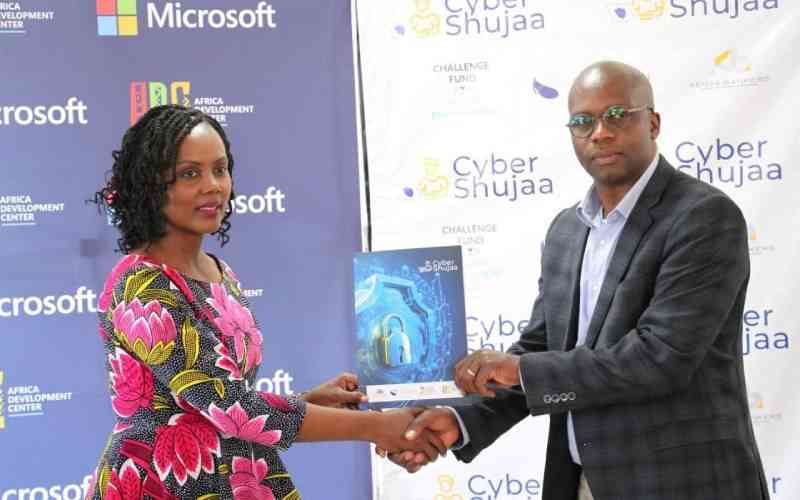To improve the cybersecurity skills of 100 Kenyan students, the Microsoft Africa Development Centre (ADC) has teamed up with Cyber Shujaa.
An intense three-month programme is offered to 70 undergraduate and 30 graduate students with fewer than two years of work experience.
How do the cybersecurity modules help protect against threats?
The program encompasses eight comprehensive cybersecurity modules delivered through a hybrid learning model, with theoretical and practical instruction delivered one-on-one in the classroom and weekly mentoring meetings.
Read also: Microsoft, G42 to launch Geothermal-Powered Data Center in Kenya
“This program is one of several ADC initiatives to improve skill development in Kenya’s tech industry. Although cybersecurity is critical to operations in many sectors, it has remained under-resourced in terms of human capital. This is the ADC’s contribution to establishing Kenya as the go-to destination for cybersecurity professionals, and we are delighted to do so with Cyber Shujaa.
The participants will receive two Microsoft cybersecurity certificates, putting them in a better position to secure roles in the industry,” said Catherine Muraga, Managing Director of Microsoft ADC.
Cyber Shujaa, formed by Serianu Limited, USIU-Africa, and the Kenya Bankers Association, teaches youngsters cybersecurity and data protection. Over 500 people have received competency-based skills training.
Dr. Lola Omole-Odubekun, Interim Vice-Chancellor of USIU-Africa, remarked, “I am pleased to see that this initiative coincides with our strategic goals as a university. Our strategic strategy uses teaching, learning, and research to solve these problems.
Serianu, a Kenyan company, is enhancing its Cyber Shujaa program to address the skills gap in the cybersecurity industry. The program, launched in 2016, has trained students from 67 universities nationwide.
The partnership, which includes Microsoft ADC, aims to provide upskilling opportunities for Kenyan women and men in IT and cybersecurity.
Why is There a Global Shortage of Cybersecurity Professionals?
A global shortage of cybersecurity workers has been found in recent studies, which the programme supports. According to a study by Kaspersky Cybersecurity, 41% of companies worldwide do not have enough digital security experts. Furthermore, the World Economic Forum and ISC2 study found that the world lacks 4 million cybersecurity experts.
As stated in the Microsoft Digital Defence Report 2023, cyber threats have grown in sophistication, speed, and size, which poses problems for the online ecosystem’s security and resiliency.
Read also: Microsoft Invests $70M in South African economy
Additionally, the study stresses the significance of basic security measures, strong partnerships, and new developments in AI to fight changing dangers and safeguard the digital realm.
At the launch, Igor Sakhnov, Corporate Vice President of Engineering at Microsoft, said, “This partnership is not only perfect timing, but it’s also expected to give the industry a much-needed boost, especially in Africa.”
The programme covers eight topics: forensics, network security, application security, cloud security, incident response, security design, IoT security, and answering security questions. This gives participants a complete understanding of the cybersecurity environment.
The cybersecurity upskilling project supports Microsoft ADC efforts like the faculty upskilling programme, Game of Learners, and the Women Inspiring and Nurturing Women (WINS) mentorship programme, which promotes IT proficiency.
















